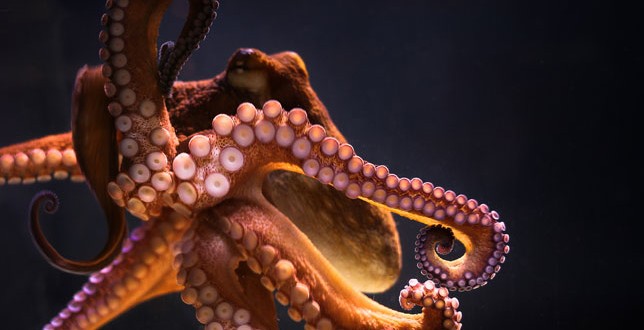Ever wondered why octopuses don’t tie themselves in knots? A team from the Hebrew University of Jerusalem believes they have discovered how they achieve it: a chemical produced by octopus skin temporarily stops the suckers from doing their job.
The team found that the suckers on the tentacles do not stick to octopus skin: They manage this by sensing a chemical produced by the skin.
To reach their conclusion, the scientists took amputated octopus arms, which can remain alive on their own for an hour. They found that the tentacles attached themselves to every type of surface except other octopus arms.
“In more than 30 trials during the preliminary observations,” they wrote, “we never saw the suckers of amputated arms attach to the arm itself or to another arm covered with skin, whether they originated from the same animal or from different animals.”
However, when the team put skinned octopus arms in reach of the amputated ones, the suckers latched onto the skinless flesh.
“We were entirely surprised by the brilliant and simple solution of the octopus to this potentially very complicated problem,” the researchers said, according to the Daily Mail.
However, octopi do eat each other, and the scientists found that live specimens do sometimes grab amputated arms. This, they wrote, suggests that “central brain control can override (veto) the inhibition of the reflexive attachment behavior.”
Live octopi also seemed able to recognize their own amputated arms versus those from another specimen.
They also found that many octopus movements are highly redundant, almost reflexive, simplifying the control of the eight arms.
In the article summary, the researchers suggested that their findings on octopus motor control and self-awareness could have important implications for the development of autonomous robots.
Agencies/Canadajournal
 Canada Journal – News of the World Articles and videos to bring you the biggest Canadian news stories from across the country every day
Canada Journal – News of the World Articles and videos to bring you the biggest Canadian news stories from across the country every day



